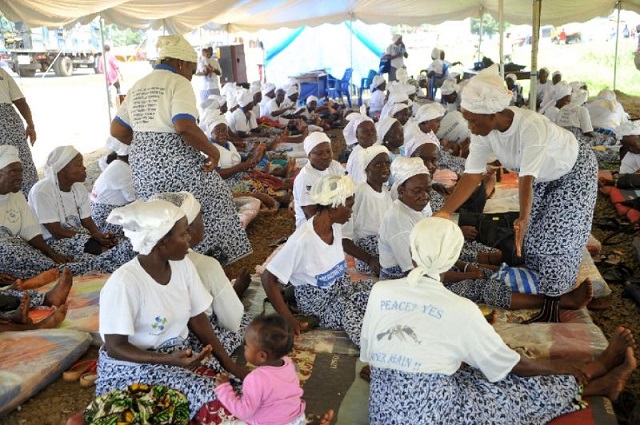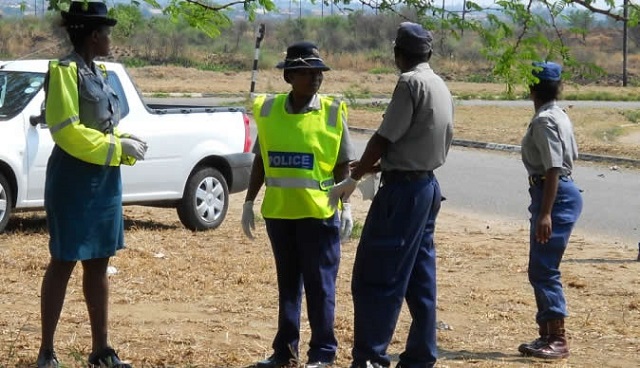Liberian women fast for peaceful elections


Members of the Women in Peacebuilding Network (WIPNET) sit on mattresses under a tent as they fast. Their call for peaceful elections next week is an echo of the non-violent protests by female activists that famously helped to end Liberia’s civil wars. — AFP
Monrovia — Dressed in identical printed skirts, a hundred Liberian women knelt in prayer after another long day in three weeks of fasting, appealing once more that their country be spared of violence.
Ahead of elections next Tuesday, women of all ages are gathering from dawn to sunset on a roadside close to the party headquarters of several presidential candidates.
Their daily injunction for peace echoes the female activism that helped end Liberia’s civil wars, which ran back-to-back from 1989 to 2003.
The success of their non-violent protests propelled the bloodied West African state into the world headlines and earned a Nobel Peace Prize for one of its leaders.
“We led the process in 2002 and 2003 for the Liberian women’s mass action for peace. We are still assisting in maintaining this peace that we have,”
Delphine Morris, national co-ordinator for the Women in Peacebuilding Network (WIPNET), said on Wednesday.
“For this electoral period, they thought it wise to come together again, to join their faiths and ensure that there be free and transparent elections,” she added.
At their small encampment, the WIPNET women regularly break out into song, and on Wednesday were shooting a music video to raise awareness of their work, to the delight and bemusement of passing traffic.
Twirling and sashaying, members sported T-shirts reading “Remember our past” and “Rape is a crime” as convoys promoting the main candidates passed by, blowing their hooters at full volume.
The women’s peace movement led sit-ins and pray-ins demanding peace talks and reconciliation during the civil war, and its founder Leymah Gbowee went on to jointly win the 2011 Nobel Prize for her work.
“During the war we were praying and fasting and the war ended,” recalls Jassah Ganyan, an elderly lady resting under the tarpaulin roof. “We don’t want more war.”
But many here believe the spectre of conflict still looms as President Ellen Johnson Sirleaf, also a co-winner of the 2011 Nobel, steps down after 12 years in power. “We foresee electoral violence,” said Morris, eyeing an armoured police vehicle passing by.










Comments